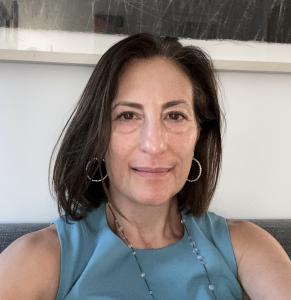Dr. Heidi Kling, a highly respected clinical psychologist and certified life coach, is excited to share highlights from her remarkable career.
NEW YORK, NEW YORK, UNITED STATES, June 4, 2024 /EINPresswire.com/ — Dr. Heidi Kling, a highly respected clinical psychologist and certified life coach, is excited to share highlights from her remarkable career. With over two decades of experience in clinical practice, research, and academia, Dr. Kling has significantly advanced the field of mental health care, making impactful contributions that have helped shape modern psychotherapeutic practices.
Understanding Antisocial Personality Disorder in Inner-City Female Drug Users: Insights from a Pioneering Doctoral Dissertation
Antisocial Personality Disorder (ASPD) has long been associated with a range of challenging behaviors, including a pervasive pattern of disregard for the rights of others, deceitfulness, impulsivity, irritability, and a failure to conform to social norms. While much of the research historically focuses on males, a groundbreaking doctoral dissertation has shifted the spotlight onto an often overlooked demographic: inner-city female drug users. This research sheds light on the unique challenges and treatment needs of this vulnerable population, offering valuable insights for clinicians, policymakers, and social workers.
The Context and Importance of the Study
The urban environment poses distinct challenges for those grappling with ASPD, exacerbated by socio-economic stressors, high crime rates, and limited access to healthcare. For inner-city female drug users, these challenges are compounded by gender-specific issues, such as higher rates of victimization, societal stigma, and responsibilities such as childcare. This dissertation underscores the necessity of addressing these multifaceted issues through tailored interventions.
Key Findings from the Dissertation
The doctoral research highlighted several critical findings:
Prevalence and Manifestation:
ASPD manifests differently in women compared to men, often intertwined with histories of trauma, including physical and sexual abuse. This finding is crucial for understanding the behavioral patterns and triggers in female drug users.
Co-occurring Disorders:
High rates of co-occurring mental health disorders, such as depression, anxiety, and post-traumatic stress disorder (PTSD), were prevalent among the study participants. These comorbidities complicate the treatment of ASPD and necessitate integrated therapeutic approaches.
Barriers to Treatment:
The study identified significant barriers to accessing mental health and substance abuse treatment, including stigma, fear of losing custody of children, and a lack of gender-specific programs. These barriers highlight the need for more accessible and comprehensive care options tailored to women.
Social and Environmental Factors:
Environmental stressors such as homelessness, domestic violence, and unemployment were found to exacerbate the symptoms of ASPD. Addressing these social determinants is essential for effective treatment and rehabilitation.
Implications for Treatment
The dissertation’s findings point to the necessity of developing gender-responsive treatment programs that address the specific needs of inner-city female drug users with ASPD. Such programs should include:
Trauma-Informed Care: Incorporating trauma-informed approaches is vital, given the high prevalence of abuse histories. This can help in creating a safe therapeutic environment that fosters trust and healing.
Integrated Services: Combining mental health and substance abuse treatment within a single, cohesive program can address the dual diagnosis of ASPD and other mental health disorders more effectively.
Holistic Support: Providing support for housing, employment, and childcare can alleviate some of the external pressures that exacerbate ASPD symptoms and hinder recovery.
Community-Based Interventions: Leveraging community resources and support networks can enhance the social support system for these women, facilitating better treatment adherence and long-term recovery.
This pioneering doctoral dissertation has illuminated the unique challenges faced by inner-city female drug users with Antisocial Personality Disorder. By highlighting the distinctive manifestation of ASPD in women and the compounded barriers they face, this research calls for a paradigm shift in how treatment programs are designed and implemented. It advocates for a holistic, trauma-informed, and gender-responsive approach to care that addresses the multifaceted needs of this population. As we move forward, integrating these insights into practice can lead to more effective interventions and improved outcomes for some of society’s most vulnerable individuals.
About Heidi Kling’s Research and Academic Contributions
Dr. Kling’s research has provided valuable insights into complex psychological disorders. Her doctoral dissertation examined antisocial personality disorder in inner-city female drug users, shedding light on the unique challenges and treatment needs of this population. This research contributed to a better understanding of the intersection between personality disorders, substance abuse, and socio-economic factors, informing more effective therapeutic approaches.
She has also conducted comparative studies on psychoanalytic treatments, exploring the efficacy of different therapeutic modalities. Her research has been presented at prominent conferences, including the National Meeting of the Collaborative Analytic Multisite Project of the American Psychoanalytic Association. These presentations have covered a range of topics, such as body image, eating disorders, and psychoanalytic processes, highlighting her expertise in these areas and her commitment to advancing the field through empirical research.
Life Coaching Integration
In addition to her clinical and academic roles, Dr. Kling is also a certified life coach through the Certified Life Coach Institute. She blends her psychological expertise with life coaching techniques to help individuals achieve their personal and professional goals. This combination allows her to offer a holistic approach to mental health care that addresses both psychological challenges and personal development.
Life coaching provides a goal-oriented framework that complements the depth-oriented approach of psychodynamic psychotherapy. Dr. Kling helps her clients identify and achieve their goals, develop strategies for overcoming obstacles, and enhance their overall well-being. By integrating life coaching with psychotherapy, she offers a comprehensive service that supports clients in both understanding their inner experiences and taking practical steps towards a fulfilling life.
Commitment to Holistic Mental Health Care
Dr. Kling is dedicated to advancing the field of psychology through her diverse roles. Her commitment to patient-centered therapy, innovative research, and comprehensive education highlights her influential presence in the mental health community. By integrating psychodynamic psychotherapy with life coaching, Dr. Kling provides a unique and effective approach to helping individuals lead healthier, more fulfilling lives.
Her holistic approach to mental health care addresses the complex interplay between psychological, emotional, and practical aspects of well-being. Whether through her private practice, academic mentorship, or life coaching, Dr. Kling is committed to fostering a deeper understanding of mental health and supporting her clients and students in achieving their full potential.
Jon Smith
News Live
email us here
![]()
Originally published at https://www.einpresswire.com/article/717245218/heidi-kling-shares-insights-from-a-pioneering-doctoral-dissertation-in-clinical-psychology









